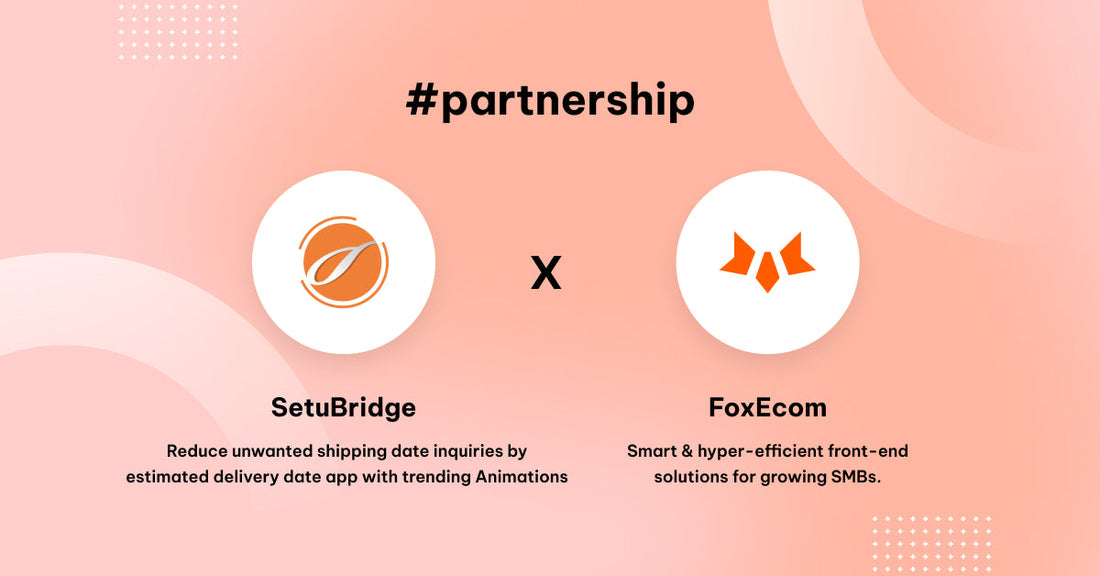Introduction
Site search is a key function of a website, particularly an online store. Sadly, the eCommerce search feature is underrated, and it hurts conversions and revenue. Did you believe that only 1 in 10 customers can find exactly what they want every time they use the search feature? And 52% of shoppers would abandon their carts and go elsewhere to look for their favorite items.
Today, we’ll cover 6 site search optimization tweaks that will help you win your customers' hearts and grow your profits in 2024.
What is eCommerce Search?
eCommerce search or eCommerce site search is beyond a search box on your store. It refers to a search engine solution that, in a few words, leads e-shoppers to the items they're looking for by understanding the intent of search queries.
In fact, studies indicated that 78% of online shoppers report encountering roadblocks when searching a retailer’s website. A consumer comes to you with a product in mind. They’re not there to browse an endless list of thousands of items. Keep in mind that they’re highly motivated to purchase with minimal effort. Hence, you must eliminate common product discovery problems and optimize online stores for purchase-ready customers.
Why Does eCommerce Search Matter?

If you need more proof, look at some benefits an efficient site search solution can offer.
According to Forrester Research, around 43% of visitors go directly to the search bar when they land on a website.
And those who used the on-site search converted at about double the rate of those who didn't.
We can sum up a few things about the advantages of a high-performing eCommerce search engine:
- Return hyper-relevant results within seconds
- Provide a better customer experience that will keep shoppers engaged
- Achieve higher conversion rates via search results that match shoppers’ intent
- Have insightful search analytics data for online merchants to make better business decisions
Best Practices For eCommerce Search 2024
Do you still think that a search tool works by matching keywords?
If your answer is YES, it’s incorrect, unfortunately. It can do so(actually) - but it should do far more than that!
With the help of AI and advanced technology, eCommerce search is now equipped with many features, like a secret weapon to set brands like yours ahead of the competition.
Here are some tweaks to upgrade your current search solution and win more sales!
Synonym Detection
At times, customers may struggle to locate specific products in your store. This can occur due to various terminologies or distinct spellings compared to your stored data.
Think about a customer shopping for ‘sneakers’. They might really want ‘trainers’ or ‘running shoes’, just like someone searching for a ‘jumper’ on a clothing website - they could actually be looking for a ‘sweater’ or ‘pullover’.

If a customer types in ‘gray', the search engine immediately recognizes that the word should be ‘grey', so they display some products with the grey variant. (Source: Rollie Nation)
Rollie is an Aussie brand doing shoes for women. Their items are now sold in leading stores in countries worldwide, including Australia, New Zealand, Italy, South of France, Netherlands, Germany, Canada, and the USA.
To improve the search experience on the storefront, the Rollie team enables AI synonyms to get shoppers to the right items they’re searching:
- Gold Rose → Rose Gold
- Totepack → Tote bag
- Shoes/Shoe → Sneakers
- Gray → Grey
Semantic Search
This term is no longer new to leading e-retailers as they’ve been taking advantage of semantic search to drive personalized search experiences.
Beyond the old keyword matching, semantic search explores what customers really mean with their queries. Using the sophisticated algorithm and the natural language processing (NLP) techniques provides a search experience that understands user intent better, making each search more effective and enjoyable.

It's easier for your site search if people are specific about what they want to buy. However, shoppers often just get a general idea or don't know precisely what your brand offers. So, we did a small experiment, once with semantic search and the other without it.
As you can see, with a generic term like ‘dress in dark color', the semantic search can provide consumers with feasible results despite the unmatched keywords in their search query, while the other leads to a dead end.
Allow Search Access To More Than Just Your Items
While browsing your store, visitors may still explore various product-related information instead of looking for a specific item. Thus, ensure your onsite search brings them their desired results. In addition to product names, it should incorporate size charts, category summaries, technical details, and other resources. Your search helps shoppers learn more about options as they consider their purchase.

Faceted Search
Let shoppers search the way they want to search!
Some will want to filter by department or topic. Others are interested in the best reviews. Some want the lowest price first, while others want the highest price first. Nancy may look for red, Jamie desires violet, and Lia wants yellow.

Configure Search Functions On Mobile With Care
You'll lose loyal customers if it's tough for mobile users to click on that small magnifying glass or engage with your mobile search box. Buttons may be more effective than links. You may want the search field to open automatically. Whatever you decide to do with the search design, do some usability testing to find the approach that works.

On Orka’s mobile site, the search bar takes center stage, and it's simple to utilize with just a few taps.
Read more: 5 Ecommerce UX Best Practices That Increase Sales
Site Search Reports
Stop setting up everything by hunch and hope it turns out well.
Instead, you should look at data about shoppers' search behaviors to make decisions.

Gain detailed reports on search results & learn what items are doing great and which ones may need a boost. (Source: Boost AI Search & Discovery)
Consider this: you can learn exactly which products are the most sought after (and, if they aren't also the most purchased, it may indicate that the product page isn't as effective as it might be), what terms people use to locate things, and which items they're most likely to click on in search results. Furthermore, a filtering system may reveal more about their favorite style, size, color preferences, and other aspects.
What's Next?
And that’s all for now!
Start using outline best practices for eCommerce search to match shoppers’ intent with your products. Unfortunately, there’s no one-size-fits-all solution, so don’t be afraid of having some tests to find out what works for you. Your customers will thank you for the smooth shopping journey a great search brings.
We wish you a very prosperous New Year! May the upcoming year be filled with success and wealth.




